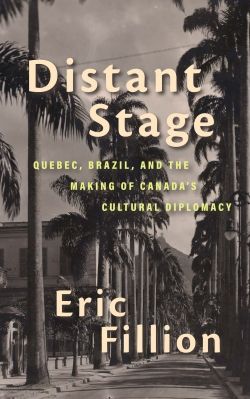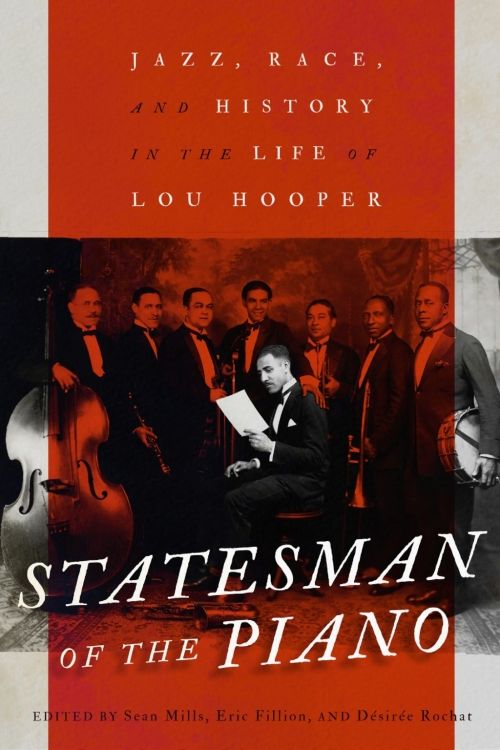Eric Fillion is adjunct professor and Buchanan postdoctoral fellow in the Department of History at Queen’s University. His research explores the social and symbolic importance of music, within countercultures and in Canadian international relations. His ongoing work on cultural diplomacy and Canadian-Brazilian relations builds on the experience he has acquired as a musician. It also informs his current research on the postwar Canadian cultural public sphere: his two main projects examine the emergence of the music festival phenomenon in Canada and the entangled sonic histories of diasporic social movements. An affiliate of the Cultural Studies program and the North American Cultural Diplomacy Initiative (NACDI), Eric Fillion is the founder of the Tenzier archival record label and co-editor of the journal Critical Studies in Improvisation. He is the author of JAZZ LIBRE et la révolution québécoise: Musique-action, 1967-1975 and Distant Stage: Quebec, Brazil, and the Making of Canada’s Cultural Diplomacy. His latest book, Statesman of the Piano: Jazz, Race, and History in the Life of Lou Hooper (coedited with Sean Mills and Désirée Rochat), is now available through McGill-Queen’s University Press.
Eric Fillion was project codirector (with Ajay Heble, University of Guelph) of Curating for Change: The Work that Music Festivals Do in the World, a two-part online conference on music festivals as resonant – even if at times contested – sites of activism, equity, environmental stewardship, and community-building. Held in August and October 2022, the event brought together scholars, practitioners, artists, organizers, and patrons in the realm of music-making to reflect on the work that independent, artist-run, or boutique music festivals do in promoting vital forms of activist arts-based practices and pedagogies.
- For more details, see the conference website.
Books
Distant Stage: Quebec, Brazil, and the Making of Canada’s Cultural Diplomacy
(McGill-Queen’s University Press, 2022)
It is a little-known fact that the first cultural agreement Canada signed was with Brazil in 1944. The two countries’ rapprochement launched a flurry of activity connecting Montreal to Rio de Janeiro amid the turbulence of war and its aftermath. Why Brazil? And what could songs and paintings achieve that traditional diplomacy could not?
Distant Stage examines the neglected histories of Canada-Brazil relations and the role played by culture in Canada’s pursuit of an international identity. The efforts of French-Canadian artists, intellectuals, and diplomats are at the heart of both. Eric Fillion demonstrates how music and the visual arts gave state and non-state actors new connections to the idea of nation, which in turn informed their sense of place in the world. Tracing the origins of Canadian cultural diplomacy to South America, the book underscores the significance of race and religion in the country’s international history, showing how Brazil served as a distant stage where Canadian identity politics and aspirations could play out.
Both a timely invitation to think about cultural diplomacy as a critical practice and a reflection on the interplay between internationalism and nationalism, Distant Stage draws attention to the ambiguous yet essential roles played by artists in international and intercultural relations.

----
JAZZ LIBRE et la révolution québécoise: Musique-action, 1967-1975
(M Éditeur, 2019)
** English-language translation forthcoming in 2024.
Quelle est la place du free jazz dans les luttes menées contre le capitalisme et l’impérialisme anglo-saxon au lendemain de la Révolution tranquille? En quoi l’improvisation collective en musique est-elle le moteur d’une révolte politico-culturelle, voire le vecteur d’une utopie collective? Quel est le rôle des travailleur·euses culturel·les dans le militantisme politique du Québec des années 1960 et 1970?
Cette histoire du groupe Jazz libre retrace le parcours emprunté par un collectif d’improvisateurs engagés dans la recherche de nouvelles formes de communication et d’organisation : de leurs débuts à « L’Atelier de jazz » au centre-ville jusqu’à l’Amorce dans le Vieux-Montréal, en passant par l’Association espagnole, la Colonie artistique de Val-David et la commune socialiste « P’tit Québec libre ». La pratique musicale du groupe se veut rassembleuse, participative, démocratique et libératrice. Elle l’amène à participer aux expérimentations de Raôul Duguay et de Walter Boudreau dans l’Infonie, et celles de Robert Charlebois et de ses complices de l’Osstidcho. Elle est surtout une « musique-action », c’est-à-dire un outil de désaliénation avec lequel le Jazz libre invite les gens à communiquer ensemble pour ensuite prendre conscience de leur capacité d’agir et de se libérer – individuellement puis collectivement. Cette démarche lui permet d’établir des réseaux avec des membres de la revue Parti pris et du Front de libération du Québec ainsi que des militant·es étudiant·es et ouvrier·ères. Dès lors, sa destinée est fatalement liée à celle de la gauche indépendantiste ; une gauche bigarrée qui, à la fin des années 1960 et au début des années 1970, fait face aux champs des possibles.

Articles and Chapters (selected list)
— “Talking Jazz at the Stratford Shakespearean Festival, 1956-58.” In North of America: Canadians and the
American Century, 1945-60, edited by Michael Stevenson and Asa McKercher, 315-340. Vancouver: UBC Press, 2023.
— “Pop Friction: Performing Canada at the Festival Internacional da Canção Popular, 1966-69.” Canadian Journal of Latin American and Caribbean Studies 48, no. 1 (2023): 72-91.
— “Youth, Drugs, and Surveillance at Manseau’s Woodstock Pop Festival.” In Pleasure and Panic: New Essays on the History of Alcohol and Drugs, edited by Dan Malleck and Cheryl Warsh, 77-105. Vancouver: UBC Press, 2022.
— “P.K. Page and the Art of Diplomacy: An Ambassadorial Wife in Brazil.” In Breaking Barriers, Shaping Worlds: Canadian Women and the Search for Global Order, edited by Greg Donaghy, Jill Campbell–Miller, and Stacey Barker, 229-265. Vancouver: UBC Press, 2021.
— “Harmonium in California: Musically Imagined Communities and the Rockumentary Form.” In Mapping the Rockumentary: Images of Sound and Fury, edited by Gunnar Iversen and Scott MacKenzie, 250-262. Edinburgh: Edinburgh University Press, 2021.
— “The New Quebec Man: Activism and Collective Improvisation at Petit Québec libre, 1970-73.” In Making Men, Making History: Canadian Masculinities Across Time and Place, edited by Peter Gossage and Robert Rutherdale, 236-254. Vancouver: UBC Press, 2018.
— “Jazz libre et free jazz.” In La contre-culture au Québec, edited by Karim Larose and Frédéric Rondeau, 25-54. Montreal: Presses de l’Université de Montréal, 2016.
— “Jazz libre: musique-action ou la recherche d’une praxis révolutionnaire au Québec (1967-1975).” Labour / Le Travail 77 (Spring 2016): 93-120.

